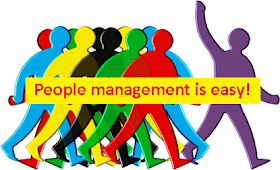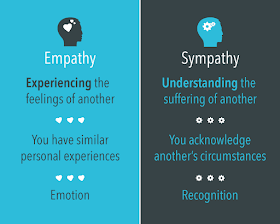Interviewer dos and
don'ts (for Experienced Professionals)
If you are hiring an experienced
person for your organization, look at his or her resume and design your
questions based on skills and experience in his/her resume.
Instead if you prepare questions
based on what's going on in your office or project and want to ask them in an
interview, it’s better to cancel that interview and conduct it with your own
office people or teams because they are the only people who can meet your
expectations (or someone who guided them to others).
Interviewers should focus on understanding
the interviewee skills, his achievements and actions, how effectively a person
developed, handled things and delivered results.
River Frog meets the Well frog: ( Click to read: Frog Story )
It happened to me in the year
2010, one person asked me one testing question in an interview. I said; I don't
know. He again said in the past 6 years I'm working on this! We all know about
it. How come you don't know as an experienced person (and laughing) ? Just
silence was my answer. (Here is my true answer; he is living in one small well
and believes that is the whole world. Had he visited other wells or rivers he
would have not been that immature. I was facing that interview as I grew as big
as a river (at least bigger than his well). It's sad to see that person who
lives in one small well and believes that is the entire universe.
Ocean Frog meets, frog in a pit:
Again in 2013, I was asked to
take one set of questions and write answers. I failed heavily in that test. I
know that was another small well (or pit) who conducted the interview, at that
time I was as big as an ocean. But after a few days, I got selected in “under
10 ranked World's Fortune company”. Another ocean like company interviewed me
and selected me. Later I realized I deserved to work in a big ocean, that’s why
I got rejected from that small pit.
Looking at background may not be a good idea:
Interviewer should not look for
the history. If you really consider history, you will miss the great
possibility of getting great talents.
Example 1: World’s Great Poet Maharishi
Valmiki, was a thief in the forest before turning into a Rishi or
Poet. If you would have checked his background before considering his writing,
the world would have missed a World class writer and a poet.
Example 2: My friend got a service letter as: He is very
absent-minded and it resulted in business loss and so on. But when he took the
interview (with an ocean kind of person) he showed his service letter and
asked, do you consider this? That interviewer told my friend - “if someone
considers this, he is an idiot”. He got
selected in that company.
When hiring, don't look at the
past, not even an hour earlier to the interview, because human transformation
requires only 20 seconds. When Mahatma Gandhi was thrown out of train by
Britishers, they never know, in 20 seconds they are creating one great leader
in India who can throw Britishers out. After 20 seconds Gandhi became a freedom
fighter of India, with his transformation and self-realization.
Hire Honest and Loyal people:
Hiring honest rebels are better
than acting innocents. Because you have a clarity on honesty and anger, but you
never know when acting innocent stops his acting.
Look at the present, not the
past. If you examine your own self, every bad past gives bright beginnings.
More importantly, the interviewer
should focus his questions on the most recent work, not the technical details of 10 years back work.
You don't know what breakfast you
had last week, expecting someone to remember that is !!!!!
Do questions matter in an interview?
Most of the cases yes, but few
cases questions don’t matter. Example: In the year 2009, I interviewed one lady
(fresher), she could not answer one question on testing or academics, I asked
to write one simple select query, she failed there also. Still I recommend it
to my manager by explaining interview results. He was shocked! You are saying
she didn't answer anything but still you are recommending? He called me let's
go and discuss the same with the HR head. HR asked me if you are recommending
because she is looking pretty. (Of course, she was looking pretty) I told my
HR, not because of that, I see a great potential in her. HR trusted me and
hired her. In fact, she proved my observation by becoming a lead in 2 years by
delivering great results.
I also got to know when hiring
Sundar Pichai, [Google CEO] interviewer asked him about Gmail. Sundar said I don’t know, later they
showed him Gmail in their computer, after watching that he suggested
enhancement to it. He got selected by his potential and not by the answers.
If you are looking for a
candidate, look for their interest, innovation, involvement, ownership
attitude, values, commitment and dedication.
Any skills can be developed
easily not the values, attitude, commitment, discipline and work ethics.
Example: In 10 days, I become an
expert in Tricentis Tosca automation tool. In 4 days, I became proficient in
the UiPath automation tool. In 2 days, I completed a 5 weeks PMP/PMBOK online
course of Initiating and Planning Projects from UCI. You can't bring
commitment, discipline and work ethics through tools or program learning.
Knowing Hard Water components is not everything?
I was studying 2nd
year BSc. One 12th grade student asked me, do you know the hardwater
components? I said I don’t know. He laughed and said you are studying 2nd
year BSc (with chemistry as a major subject) still you don’t know? I requested
him to come with me. I took him to another hostel room where 3rd
year BSc students reside. We raised the same question to all 3 guys. All they
said we don’t know. Later I told him, knowing hardwater components is not
everything. After he (12th grade student went to his room) my
seniors told me, this guy will not clear 12th grade. It was true, he
failed in 3 subjects in his final exam.
Similarly, if you are shooting
one question and declaring a candidate's talents based on that, It’s equivalent
to saying you are as mature as the above 12th grade student.
What if google interviewer
rejected Sundar Pichai as he said he didn't know about Gmail. Because they have
two reasons to reject: one he doesn’t know their project and second one he has
not even done homework to understand about company and company products.
Are you looking at Education and Academic Score or percentage to hire?
Here is an incident that happened
to me. As a fresher, I went for an interview in MG Road, Bengaluru. Their
interview panel checked my resume and since my percentage was 40+% in 10th
and 12th grade they rejected me as they were expecting above 70%. I
was asked to vacate the premises forcefully. After a few years I was working in
the world's big organization as a full-time permanent employee and there I saw
employees of the rejected company working as contract employees. (70% scored
people) Later I realized some failures are indications of coming super success
or you may be more qualified or deserved than that position.
If you are estimating a person by
% score then you may possibly hire contractor quality people. I’m not joking,
look at the school dropping people's achievements.
●
Michael Dell, Dell
founder, dropped out at 19
●
Steve Jobs, Apple
founder, dropped out at 19
●
Julian Assange,
Wikileaks founder, dropped out at 19
●
Bill Gates, Microsoft
founder, dropped out at 20
●
Evan Williams, Twitter
co-founder, dropped out at 20
●
Mark Zuckerberg,
Facebook founder, dropped out at 20
●
Larry Ellison, Oracle
founder, dropped out at 20
●
Jan Koum, WhatsApp
founder, dropped out at 21
●
Travis Kalanick, Uber founder,
dropped out at 21
●
John Mackey, Whole
Foods founder, dropped out at 22
Parameters doesn’t matter, sense and consciousness matters:
Yes, Napoleon Bonaparte was rejected twice from the soldier interview. He got
disqualified due to his low height. Later he becomes a ruler of that nation. In my
opinion; parameters do not matter in shortlisting the candidate, sometimes
awareness, sense and consciousness matters more than the parameters.
If you are expecting perfect answers to all your questions, hire one computer or google assistance, it will perform much better than any human; with its existing data storage and logics to retrieve, by already assumed and stored data.
But no machine is qualified to face and win the future like humans. Because humans are very creative, adaptive and innovative. In interview; Please check once, are you looking for a creative human or dead hard disk [which has all answers of all the subjects] ?
In my opinion, a person with good memory
is like a hard disk. Creative or innovative person may be bad in memory, but
good in innovation. If you are going with parameters you may miss him. People
who scored 100 out of 100 in political science subjects with a Master Degree
are not qualified to become President or Prime Minister of the country. [It’s a
fact!]
You have designed Interview
questions based on your current team or project work’s technical team
recommendation? Better conduct your interview with your own people, they are
the only qualified people available on the earth to answer them!









